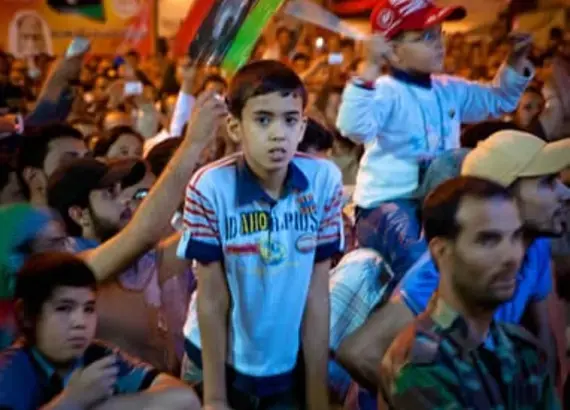
Success Story
Notes from Benghazi: Political Parties Look to the Future
NDI staff in Benghazi continue to meet with representatives of the National Transitional Council (NTC) and political activists. NDI Resident Country Director Matyas Eörsi and Senior Advisor David Rolfes report from Benghazi on the difficulties new political movements and parties are facing.
While international attention is focused on the final stages of the conflict in Libya, the whereabouts of Muammar Gaddafi and the humanitarian crisis in Tripoli, political activists are taking advantage of newfound freedoms. Scores of political movements have been created in recent months, with some identifying themselves as political parties. These newly-created groups are beginning to create structures, establish identities and name their leaders, and they are determined to play a role in the post-Gaddafi transition process.
For four decades, Gaddafi encouraged negative propaganda about parties, effectively banning them in 1972. His regime routinely subjected political activists to intimidation, imprisonment and violence. Generations of Libyans were taught that those involved with a political party were traitors to their country. As a result, Libyan views of political parties range from ambivalence to outright hostility. “This is our main challenge,” explained one party activist. “After 40 years of Gaddafi, one of the main things we are doing now is trying to educate people that parties are the only way to prevent another dictatorship.”
With elections looming as soon as eight months from now, Libya’s new political parties are trying to determine how best to establish credibility and attract prospective members, supporters and voters. Reflecting the public’s ambivalence, many new parties prefer to be known as "gatherings" or "movements." Activists are apprehensive about gaining a reputation that they are seeking political control. One party leader, when asked if his party sought power, said “yes,” but only after some hesitation and with the caveat that power be used as a tool to help the masses, not to benefit an elite few.
With approximately 95 percent of Libyans living in urban areas, some party activists see tribal identity as more of a cultural and historical reference than a political one. A more immediate concern for many is the infiltration of former Gaddafi loyalists into their young organizations. As emerging parties begin to define themselves, there is growing speculation about the political role Islamists may play in the transition. Some secular-oriented parties have begun exploring the formation of coalitions to counter the perceived strength of religious political groups.
The National Transitional Council (NTC) has begun planning for the implementation of its post-Gaddafi roadmap, which includes the election of a national congress to draft a new constitution. Some NTC members have expressed concerns over the readiness and ability of new political parties to compete in the first round of elections. The NTC is considering adopting a simple majority, district-based electoral system that could favor independent candidates over those representing parties.
Public pressure for results from the NTC is mounting and criticism from civil society organizations and tribal, political and religious factions is intensifying, prompting the council to establish a "mobilization committee" intended to represent the Council in the public debate. The committee consists of a group of journalists, public relations specialists, and political activists (many of whom were political prisoners under the Gaddafi regime) and is working to influence the public dialogue to focus on civil affairs and national unity rather than tribal or religious divides.
After a flurry of activity following the liberation of most of Tripoli, the NTC is taking a more measured approach to its planned relocation to the Libyan capital. The council’s security committee has moved to Tripoli, and key members of the NTC executive have made brief visits to the capital. Four newly-created local councils in Tripoli will nominate additional members to the NTC, mirroring the process that took place in the east during the early days of the revolution. Council members are floating the idea of rotating capitals between Tripoli and Benghazi in the short term to avoid raising complaints of abandonment in the east. As the current Eid holiday marking the end of the holy month of Ramadan comes to a close this week, pressure to complete the TNC’s transition to Tripoli is likely to increase.
Read more:
Published Sept. 2, 2011



